Playlist of.
Share your videos with friends, family, and the world.
Playlist of.
Share your videos with friends, family, and the world.

Phase 3 clinical trials of MDMA-assisted psychotherapy for post-traumatic stress disorder (PTSD) are currently underway in the USA, Canada, and Israel.
These trials, led by the Multidisciplinary Association for Psychedelic Studies (MAPS), are the last step in figuring out if this treatment is safe and effective enough for MDMA to be legally prescribed to treat PTSD.
If there’s a positive result from the trials, this could happen in the USA as soon as 2022.
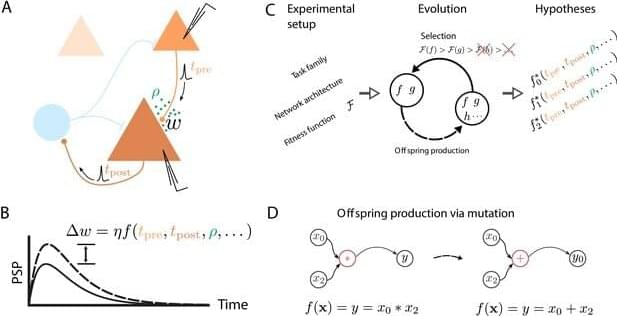
Uncovering the mechanisms of learning via synaptic plasticity is a critical step towards understanding how our brains function and building truly intelligent, adaptive machines. Researchers from the University of Bern propose a new approach in which algorithms mimic biological evolution and learn efficiently through creative evolution.
Our brains are incredibly adaptive. Every day, we form new memories, acquire new knowledge, or refine existing skills. This stands in marked contrast to our current computers, which typically only perform pre-programmed actions. At the core of our adaptability lies synaptic plasticity. Synapses are the connection points between neurons, which can change in different ways depending on how they are used. This synaptic plasticity is an important research topic in neuroscience, as it is central to learning processes and memory. To better understand these brain processes and build adaptive machines, researchers in the fields of neuroscience and artificial intelligence (AI) are creating models for the mechanisms underlying these processes. Such models for learning and plasticity help to understand biological information processing and should also enable machines to learn faster.
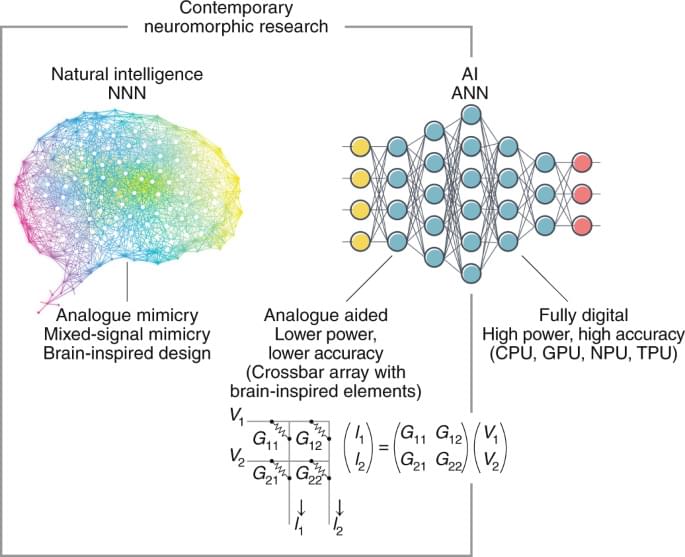
This Perspective explores the potential of an approach to neuromorphic electronics in which the functional synaptic connectivity map of a mammalian neuronal network is copied using a silicon neuro-electronic interface and then pasted onto a high-density three-dimensional network of solid-state memories.

The degradation and regeneration of myelin sheaths characterize neurological disorders such as multiple sclerosis. Cholesterol is an indispensable component of myelin sheaths. The cholesterol for the regenerated myelin sheaths must therefore either be recycled from damaged myelin or produced again locally.
In a recent study, scientists at the Max Planck Institute for Experimental Medicine in Göttingen, led by Gesine Saher, found that in the case of chronic damage, unlike in acute damage, hardly any cholesterol is recycled. Instead, the new production of cholesterol determines the efficiency of the repair. Unexpectedly, not only the myelin-forming cells themselves but also nerve cells make an important contribution to regeneration.
Cholesterol synthesis in nerve cells ensures the replenishment of newly myelin-forming cells. This could impact the therapeutic success for myelin disorders such as multiple sclerosis.
Becoming Immortal through Mind Uploading sounds like something that’ll only be possible around the 2100’s. But amazingly, a group of scientists at Nectome are working on giving us the ability to live forever inside of a computer simulation by the end of this decade for around 10000$.
Ray Kurzweil, director of engineering at Google, has long predicted that people will be able to upload their entire brains to computers and become digitally immortal by 2045. Kurzweil made this claim for many years, e.g. during his speech in 2013 at the Global Futures 2045 International Congress in New York, which claims to subscribe to a similar set of beliefs. Mind uploading has also been advocated by a number of researchers in neuroscience and artificial intelligence, such as the late Marvin Minsky.
–
If you enjoyed this video, please consider rating this video and subscribing to our channel for more frequent uploads. Thank you! smile
–
TIMESTAMPS:
00:00 The Future is near.
01:46 How this procedure works.
03:31 The development of this technology.
04:24 Is this actually possible to achieve?
06:58 The ethical concerns.
07:40 Last Words.
–
#longevity #minduploading #bci

Japanese startup Diver-X is looking to launch a SteamVR-compatible headset that seems to be taking a few ideas from popular anime Sword Art Online, which prominently features a fully immersive metaverse. While it’s not a brain-computer interface like the “full dive” NerveGear featured in the show, the heavy-weight hardware presents a pretty interesting approach to VR headset design.
Called HalfDive, the Tokyo-based company says its taking advantage of the sleeping position to “enabl[e] human activity in its lowest energetic state.”
Since it’s worn laying down, the creators say they’re freed from many of the design constraints that conventional VR headset makers are used to pursuing with the introduction of things like pancake optics and microdisplays. Since the weight isn’t on your neck, it doesn’t have to be light or slim.
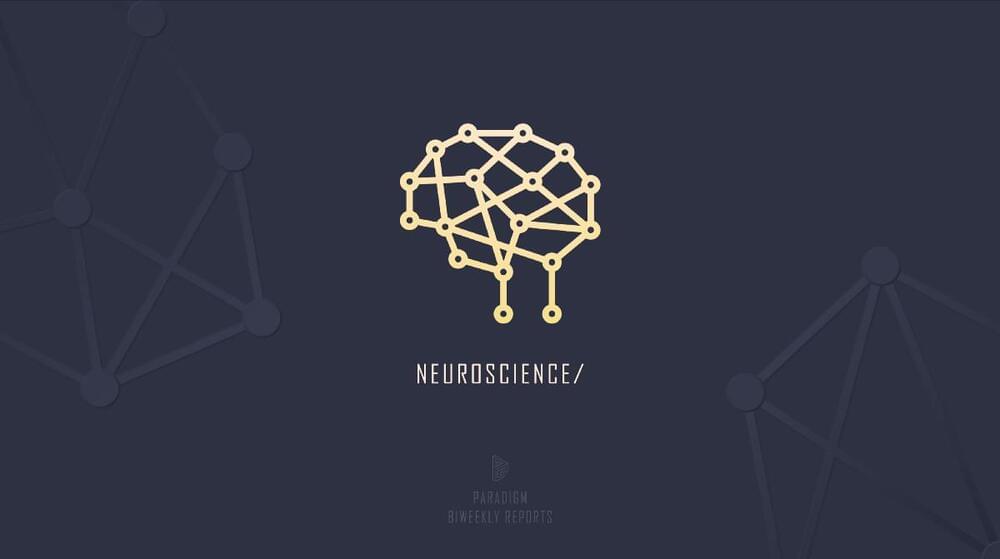
Neuroscience biweekly vol. 45 27th October — 10th November.
The brain uses a shared mechanism for combining words from a single language and for combining words from two different languages, a team of neuroscientists has discovered. Its findings indicate that language switching is natural for those who are bilingual because the brain has a mechanism that does not detect that the language has switched, allowing for a seamless transition in comprehending more than one language at once.
“Our brains are capable of engaging in multiple languages,” explains Sarah Phillips, a New York University doctoral candidate and the lead author of the paper, which appears in the journal eNeuro. “Languages may differ in what sounds they use and how they organize words to form sentences. However, all languages involve the process of combining words to express complex thoughts.”
“Bilinguals show a fascinating version of this process — their brains readily combine words from different languages together, much like when combining words from the same language,” adds Liina Pylkkänen, a professor in NYU’s Department of Linguistics and Department of Psychology and the senior author of the paper.
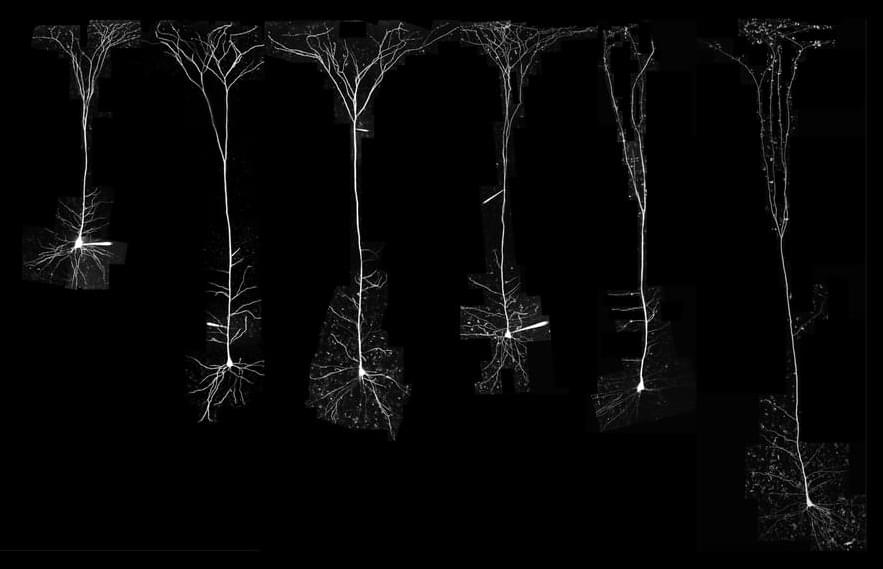
Human neurons have fewer ion channels, which might have allowed the human brain to divert energy to other neural processes.
Neurons communicate with each other via electrical impulses, which are produced by ion channels that control the flow of ions such as potassium and sodium. In a surprising new finding, MIT neuroscientists have shown that human neurons have a much smaller number of these channels than expected, compared to the neurons of other mammals.
The researchers hypothesize that this reduction in channel density may have helped the human brain evolve to operate more efficiently, allowing it to divert resources to other energy-intensive processes that are required to perform complex cognitive tasks.
“If the brain can save energy by reducing the density of ion channels, it can spend that energy on other neuronal or circuit processes,” says Mark Harnett, an associate professor of brain and cognitive sciences, a member of MIT’s McGovern Institute for Brain Research, and the senior author of the study.
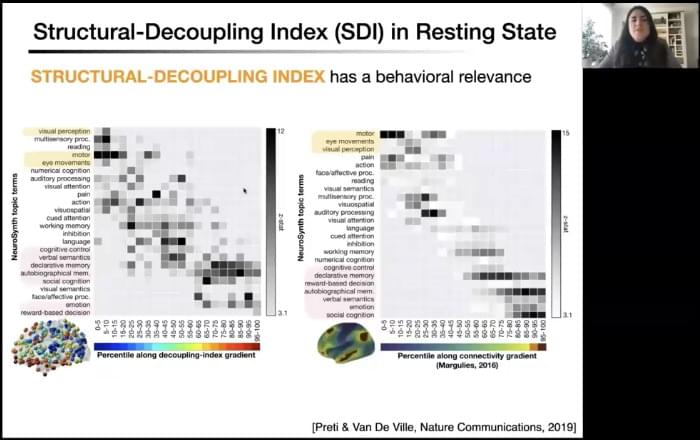
A CNS 2021 provided an incredible opportunity to learn more how the anatomy and integrity of brain networks impact higher-level cognition.
In the 19th and 20th century, cases of individuals with brain injury, such as Phineas Gage or Henry Molaison, have advanced our understanding of the relationship between the anatomy of the brain and its function. Back then, methods were limited to investigate whole-brain structure and function. Now, cognitive neuroscientists have some ability to visualize and measure activity of the whole brain at once, as well as the computational tools to investigate complex network-level relationships between brain structure, brain function, and behavior.
As a doctoral student working on stroke recovery, attending the CNS 2021 symposium led by Danielle Bassett was an incredible opportunity to learn more about some of the most recent methods that have been developed to understand how the anatomy and integrity of brain networks impact higher-level cognition. Strokes highly disrupt anatomical and functional connectivity, leading to cognitive and motor impairments. In individuals with post-stroke language impairments, namely aphasia, evidence shows that the more functional brain networks recover an organization similar to healthy individuals the better the recovery (Kiran et al., 2019). Understanding the relationship between brain structure and function in health and disease is therefore essential to develop appropriate treatments.
At this CNS symposium, the speakers showed how different models can help us better understand brain structural organization and how this particular organization constrains cognitive processes. They also showed direct relationships between alteration of anatomical networks, caused by disease or behavioral training, and changes in behavioral performance.